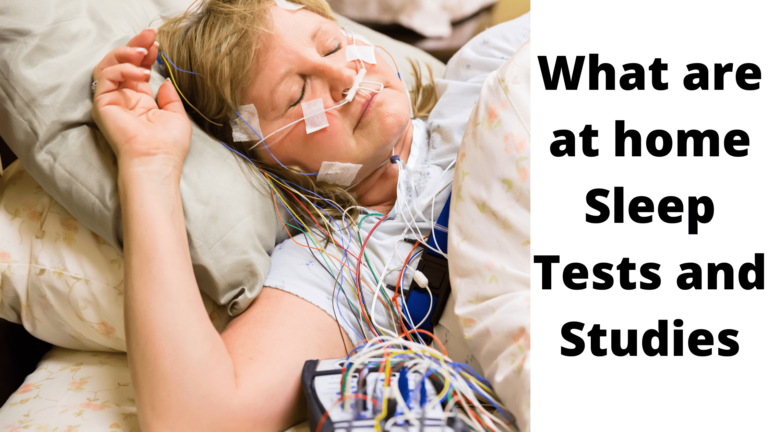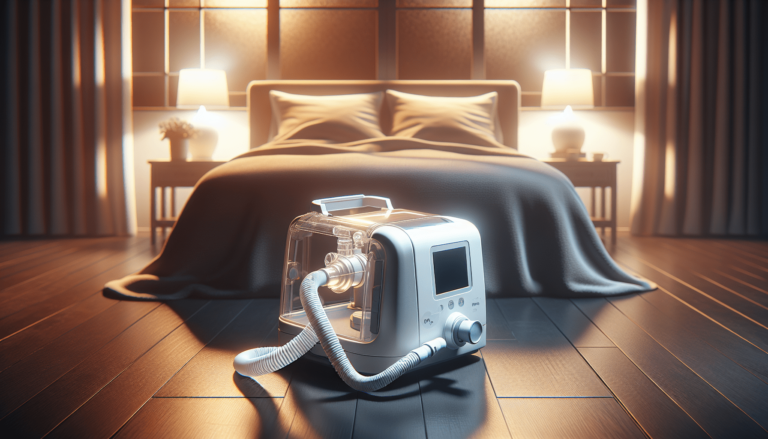Sleep Apnea Places Near Me

Are you looking for sleep apnea treatment options in your area? Look no further! Our mission is to be the go-to resource for all things related to sleep health, and we are dedicated to providing exceptional patient care and innovative diagnostic solutions. Whether you’re struggling with sleep apnea or suspect you may have it, we’re here to help. With our commitment to ethical patient care and unmatched support, you can trust us to guide you on your journey to better sleep. So, if you’re searching for sleep apnea places near you, you’ve come to the right place.
Understanding Sleep Apnea
Sleep apnea is a common sleep disorder characterized by pauses in breathing or shallow breaths during sleep. These pauses can last from a few seconds to a few minutes and can occur multiple times throughout the night. Sleep apnea disrupts the normal sleep cycle, preventing the affected individual from getting the restful and rejuvenating sleep they need.
Definition of sleep apnea
Sleep apnea is defined as a sleep disorder in which breathing repeatedly stops and starts during sleep. This interruption in breathing can result in a decrease in oxygen levels in the blood, leading to a variety of negative health outcomes.
Types of sleep apnea
There are three main types of sleep apnea:
- Obstructive Sleep Apnea (OSA): This is the most common type of sleep apnea, accounting for about 80-90% of cases. It occurs when the throat muscles relax and block the airway, preventing airflow.
- Central Sleep Apnea (CSA): Central sleep apnea occurs when the brain fails to send signals to the muscles that control breathing. It is less common than OSA and is often associated with underlying medical conditions such as heart failure or stroke.
- Complex Sleep Apnea Syndrome (CSAS): Also known as treatment-emergent central sleep apnea, this type of sleep apnea is a combination of obstructive and central sleep apnea. It usually occurs when a person with OSA starts using continuous positive airway pressure (CPAP) therapy, but their central sleep apnea worsens.
Symptoms of sleep apnea
The symptoms of sleep apnea can vary from person to person, but common signs and symptoms may include:
- Loud, chronic snoring
- Pauses in breathing during sleep, witnessed by others
- Excessive daytime sleepiness or fatigue
- Morning headaches
- Waking up with a dry mouth or sore throat
- Difficulty concentrating or remembering
- Irritability or mood changes
- Decreased libido
Causes of sleep apnea
Sleep apnea can have various causes, including:
- Obesity: Excess weight can contribute to the development of sleep apnea by increasing the amount of fatty tissue in the neck, which can compress the airway.
- Age: Sleep apnea becomes more common as people age, with middle-aged and older adults being at higher risk.
- Gender: Men are more likely to develop sleep apnea than women, although the risk increases in women after menopause.
- Family history: Having family members with sleep apnea can increase the risk of developing the condition.
- Smoking and alcohol consumption: Both smoking and excessive alcohol consumption can relax the muscles in the throat and interfere with normal breathing during sleep.
Importance of Sleep Apnea Treatment
Sleep apnea is a serious condition that, if left untreated, can have negative impacts on both physical and mental health. Seeking treatment for sleep apnea is crucial, as it can significantly improve an individual’s overall well-being.
Negative health impacts of untreated sleep apnea
Untreated sleep apnea can lead to a range of health problems, including:
- High blood pressure: The recurring pauses in breathing during sleep can elevate blood pressure, increasing the risk of cardiovascular disease, heart attack, and stroke.
- Diabetes: Sleep apnea is associated with insulin resistance and impaired glucose metabolism, which can contribute to the development of type 2 diabetes.
- Weight gain and difficulty losing weight: Sleep apnea disrupts the normal hormonal balance, leading to increased appetite and decreased metabolism, making it harder to maintain a healthy weight.
- Mental health issues: Untreated sleep apnea can contribute to the development or exacerbation of mood disorders such as depression and anxiety. It can also impair cognitive function and memory.
- Increased risk of accidents: The excessive daytime sleepiness resulting from sleep apnea can impair concentration, reaction time, and situational awareness, increasing the risk of accidents while driving or operating machinery.
Benefits of sleep apnea treatment
Treating sleep apnea can have numerous benefits, including:
- Improved sleep quality: With proper treatment, individuals with sleep apnea can experience a significant improvement in the quality of their sleep. They will no longer experience pauses in breathing or disruptive snoring, leading to a more restful night’s sleep.
- Reduction in associated health conditions: Treating sleep apnea can help manage or even resolve related health conditions such as high blood pressure and diabetes.
- Enhanced daytime alertness and productivity: By addressing sleep apnea, individuals can alleviate excessive daytime sleepiness, improving their alertness and productivity throughout the day.
- Better quality of life: Improved sleep and overall well-being can lead to a better quality of life, with individuals feeling more energized, focused, and emotionally stable.
Finding Sleep Apnea Places Near Me
If you suspect you have sleep apnea, it is essential to seek professional help for an accurate diagnosis and appropriate treatment. Here are some steps to finding sleep apnea places near you:
Importance of seeking professional help
While it may be tempting to try to self-diagnose or self-treat sleep apnea, it is crucial to consult a sleep specialist or a certified sleep center. Sleep apnea is a complex condition that requires proper evaluation and diagnosis by trained professionals.
Researching sleep apnea clinics
Start by researching sleep apnea clinics or sleep centers in your area. Look for reputable clinics that specialize in sleep disorders and employ qualified sleep specialists.
Using online directories
Online directories can be a valuable resource in finding sleep apnea places near you. Websites like Healthgrades or the American Academy of Sleep Medicine (AASM) have directories that allow you to search for sleep centers in your location.
Asking for recommendations
Reach out to your primary care physician, friends, or family members who may have sought treatment for sleep apnea. They can provide recommendations based on their own experiences.
Checking with local hospitals
Many hospitals have dedicated sleep centers or partnerships with sleep clinics. Contact local hospitals to inquire about sleep apnea services and availability.
Criteria for Choosing a Sleep Apnea Place
When choosing a sleep apnea place, consider the following criteria to ensure you receive the best possible care:
Qualified and experienced sleep specialists
Look for a sleep apnea place that employs qualified sleep specialists who have expertise in diagnosing and treating sleep disorders. Board certifications and years of experience are good indicators of their competence.
Range of diagnostic tests offered
A reputable sleep apnea place should offer a variety of diagnostic tests, including overnight sleep studies (polysomnography) and home sleep apnea testing. The ability to perform comprehensive sleep tests is crucial in accurately diagnosing sleep apnea.
Availability of treatment options
Consider the treatment options offered by the sleep apnea place. Ensure they can provide a range of treatment modalities tailored to your specific needs, such as CPAP therapy, oral appliance therapy, surgical interventions, and lifestyle counseling.
Positive patient reviews and testimonials
Online patient reviews and testimonials can give you insights into the quality of care provided by a sleep apnea place. Look for positive reviews that highlight the expertise and professionalism of the staff.
Insurance coverage and affordability
Check whether the sleep apnea place accepts your insurance and whether their services are affordable for you. Understanding the financial aspects of treatment is essential to ensure you can access and complete the necessary treatment.
Services Offered by Sleep Apnea Places
Sleep apnea places offer a range of services to diagnose and treat sleep apnea. These services may include:
Diagnostic sleep studies
Sleep apnea places conduct diagnostic sleep studies, such as overnight polysomnography, to assess your sleep patterns and identify any breathing abnormalities or disruptions.
Continuous positive airway pressure (CPAP) therapy
CPAP therapy is the most common and effective treatment for sleep apnea. Sleep apnea places can provide CPAP machines, masks, and accessories, as well as guidance on how to properly use and maintain them.
Oral appliance therapy
For individuals with mild to moderate sleep apnea or those who cannot tolerate CPAP therapy, sleep apnea places may offer oral appliances. These devices help keep the airway open during sleep by repositioning the jaw or tongue.
Surgical options for sleep apnea
In some cases, surgical intervention may be necessary to treat sleep apnea. Sleep apnea places may offer surgical options, including uvulopalatopharyngoplasty (UPPP), maxillomandibular advancement (MMA), or other procedures aimed at removing obstructions in the airway.
Lifestyle changes and counseling
Sleep apnea places often provide counseling and guidance on lifestyle changes that can help manage sleep apnea symptoms. This may include weight management strategies, sleep hygiene education, and recommendations for modifying daily habits.
The Process of Getting Diagnosed
When you visit a sleep apnea place, the process of getting diagnosed typically involves several steps:
Consultation with a sleep specialist
During your initial consultation, a sleep specialist will review your medical history, discuss your symptoms, and conduct a physical examination. They may also ask you to keep a sleep diary to track your sleep patterns.
Overnight sleep study (polysomnography)
If the sleep specialist suspects sleep apnea, they may recommend an overnight sleep study. This non-invasive test records various body functions, including brain waves, eye movements, heart rate, airflow, and oxygen levels, to assess your sleep and diagnose any sleep disorders.
Data interpretation and diagnosis
After the sleep study, the collected data will be analyzed and interpreted by sleep specialists. They will evaluate the frequency and severity of breathing abnormalities, as well as other sleep parameters, to determine if you have sleep apnea and its severity.
Creation of a personalized treatment plan
Based on the diagnosis, the sleep specialist will create a personalized treatment plan tailored to your specific needs. This may include a combination of lifestyle modifications, such as weight loss or positional therapy, and the use of CPAP machines or oral appliances.
Treatment Options for Sleep Apnea
Once diagnosed, there are several treatment options available for sleep apnea, depending on the severity:
Continuous positive airway pressure (CPAP) machines
CPAP machines deliver a continuous stream of pressurized air through a mask, keeping the airway open during sleep. CPAP therapy is highly effective in treating sleep apnea and alleviating symptoms.
Oral appliances for mild to moderate sleep apnea
Oral appliances, also known as mandibular advancement devices, fit in the mouth and help reposition the jaw or tongue to keep the airway open. These devices are suitable for individuals with mild to moderate sleep apnea or those who cannot tolerate CPAP therapy.
Surgical interventions
In some cases, surgical interventions may be necessary to address structural abnormalities in the airway causing sleep apnea. Surgical options include removing excess tissue, repositioning the jaw, or modifying the structure of the throat or nose.
Weight management and lifestyle changes
Lifestyle changes, such as losing weight, avoiding alcohol and sedatives, establishing regular sleep patterns, and sleeping on your side, can significantly improve sleep apnea symptoms, especially in cases where excess weight contributes to the condition.
Benefits of Seeking Professional Treatment
Seeking professional treatment for sleep apnea can bring about numerous benefits to your overall health and well-being:
Improved sleep quality
With the right treatment approach, sleep apnea can be effectively managed, leading to improved sleep quality. By reducing or eliminating breathing interruptions during sleep, you can experience more restful and refreshing sleep.
Reduced risk of associated health conditions
Treating sleep apnea can help manage or reduce the risk of developing related health conditions such as high blood pressure, heart disease, stroke, and diabetes. By addressing sleep apnea, you can improve your overall cardiovascular health.
Enhanced daytime alertness and productivity
By managing sleep apnea, you can alleviate excessive daytime sleepiness, resulting in increased alertness and improved cognitive function. This can positively impact your productivity at work or in everyday activities.
Better quality of life
Treating sleep apnea can lead to an overall better quality of life. Improved sleep and increased energy levels can enhance your mood, relationships, and ability to engage in daily activities. Quality of life improvements may extend to mental health, physical well-being, and emotional stability.
Insurance Coverage for Sleep Apnea Treatment
Understanding your insurance coverage is crucial when seeking treatment for sleep apnea. Here are some key points to consider:
Types of insurance plans that typically cover sleep apnea treatment
Most health insurance plans, including employer-sponsored plans and individual plans obtained through the healthcare marketplace, offer coverage for sleep apnea diagnosis and treatment. Medicare and Medicaid also provide coverage for eligible individuals.
Understanding coverage limitations
While insurance typically covers sleep apnea treatment to varying extents, it’s essential to understand any limitations or restrictions. These may include deductible requirements, copayments, or the need for prior authorization.
Steps to ensure maximum insurance benefits
To ensure you receive maximum insurance benefits for sleep apnea treatment:
- Review your insurance policy: Read through your policy or contact your insurance provider to understand the specifics of your coverage for sleep apnea treatment.
- Choose in-network providers: Opt for sleep apnea places and specialists that are within your insurance network to minimize out-of-pocket expenses.
- Obtain the necessary referrals or authorizations: Depending on your insurance plan, you may need a referral from your primary care physician or prior authorization for certain diagnostic tests or treatments. Contact your insurance provider to understand the process.
- Keep accurate records: Maintain documentation of all your medical visits, diagnostic tests, and treatments related to sleep apnea. This documentation will be important if you need to appeal any claim denials or discrepancies.
Conclusion and Next Steps
Addressing sleep apnea is crucial for your overall health and well-being. If you suspect you have sleep apnea, it is important to take action and seek professional help. By understanding the definition, types, symptoms, and causes of sleep apnea, you can better understand the importance of treatment.
Start by finding sleep apnea places near you through research, online directories, and recommendations. Consider criteria such as qualified sleep specialists, available diagnostic tests, treatment options, patient reviews, and insurance coverage when choosing a sleep apnea place.
Once diagnosed, various treatment options, including CPAP therapy, oral appliances, surgical interventions, and lifestyle changes, offer relief from sleep apnea symptoms. Seeking professional treatment can lead to improved sleep quality, reduced risk of associated health conditions, enhanced daytime alertness, and a better quality of life.
Remember to review your insurance coverage and follow the necessary steps to ensure maximum benefits. By taking action and seeking professional help, you can improve your sleep and overall health, leading to a happier and more fulfilling life.






